Are you also one of those who leave work in the middle? Do you keep straying from your ultimate goal? Does your motivation frequently change, so you cannot achieve your goal? If the answer to all these questions is yes, this summary will be handy for you as we will talk about a unique and motivating book, Grit, written by Angel Duckworth.
Grit means the courage to keep doing something continuously. There is enormous grit in all achievers. They always need more. And constantly keep on perfecting their work.
They always want to achieve their goal in life. And for this, they have the unbelievable strength and courage to face pain, suffering, failure, and frustration. This is a combination of passion and perseverance. The author discusses how effort is often ignored and outshone by ‘talent.’ When really, what is more important in life is effort.
Angela Duckworth began her career as a management consultant, but after a few years, she left her job to become a math teacher in New York City. After many years of teaching young students, she became increasingly interested in effort’s role on the pathway to success.
Following her findings, she began her PhD in psychology. Duckworth is a professor at the university today, a TED speaker, and the founder and CEO of Character Lab, a nonprofit organization committed to advancing the science of character development.
Now is the time to understand this book’s seven most important lessons in detail. So let’s start.
Chapter 1. What is Grit
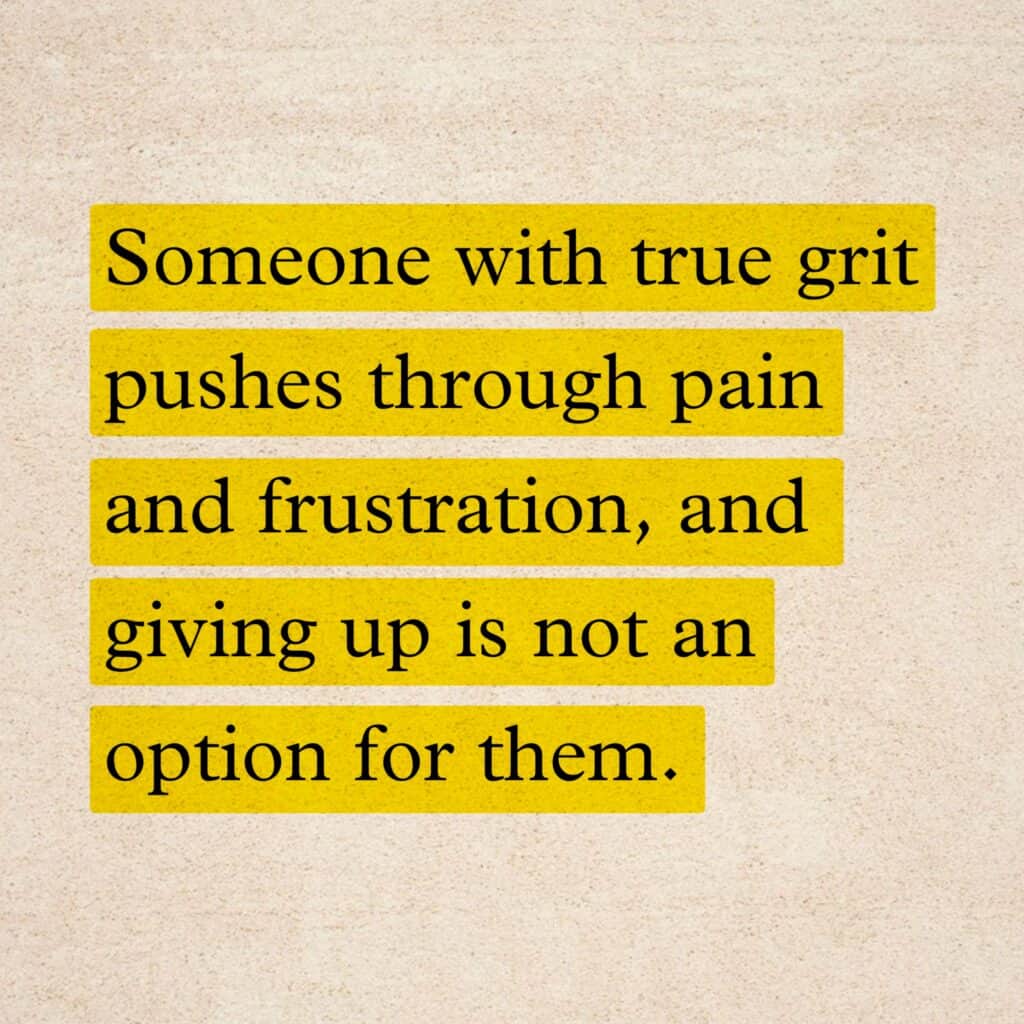
The author explains the concept of grit in terms of perseverance; she believes only industry will lead to high achievement. Someone who is a high achiever never thinks they will ever reach their goals; they are always striving more. They are the exact opposite of complacent and constantly unsatisfied. But weirdly, being unsatisfied and always chasing more is satisfying to them. Someone with true grit pushes through pain and frustration, and giving up is not an option.
A combination of passion and perseverance makes high achievers unique. High achievers have grit.
Society places a tremendous amount of emphasis on talent, a natural ability. Talent is always perceived as the hero, the only reason we have good results. What happened to the effort? Isn’t effort just as important when it comes to results? You need to try to get anywhere. When anyone accomplishes a feat worth writing about, we conclude that an individual is extraordinarily “talented.” If we overemphasize talent, we underemphasize everything else.
A lot of the reason we place so much emphasis on talent is that we want to believe the high achievers are doing something we physically couldn’t. For example, an Olympic swimmer has a natural-born talent that we could never match. This ignores the countless hours an Olympic swimmer will spend in the pool, training every day for years. We would prefer not to feel mundane but to associate an element of mystery with a high achiever.
The idea that they have some miraculous skill is more appealing than the fact that we are average and don’t put in enough effort. This magical skill that someone might hold means we don’t need to consider ourselves in the same league as them; therefore, there is no reason to compare ourselves.
The author explains the talent formula: Talent = how rapidly your skills develop when you commit time and effort. And achievement results from your developed skills being put to good use. We should recognize opportunities as a contributing factor; for example, having a dedicated coach or teacher and the opportunity to practice will always be beneficial. And in some cases, these opportunities can be more significant than any individual.
The author explains that her formulas and theories don’t include outside factors like luck. Instead, she’s focusing on the pure psychology of achievement, and even though it may not give you the whole picture, it’s still an important matter to address. Talent, how fast we improve in skill, absolutely matters. But effort factors into the calculations twice, not once. The effort builds skill. At the very same time, the action makes skill productive.
Exercise and fitness are practical examples to explain talent or effort theories. People purchase exercise equipment such as a treadmill, weights, or even new running shoes. These purchases are made with the best intentions, but findings show that, on average, 40% of people use their assets much less than they initially intended. Fitness depends on how hard we work out, of course, but a lot of the time, that’s not the issue; the drawback is that we stop working out altogether.
As any coach or athlete will tell you, consistent effort over the long run is everything. How often do people start down a path and then give up on it entirely? How many treadmills are gathering dust in basements? It’s easier to quit, and most people quit too early in any process. A genuinely gritty person will put in maximum effort on one day, but that’s not the important part; the critical component in being gritty is waking up day after day and continuing to put in the maximum effort without excuse.
Someone twice as talented but half as hardworking as another person might reach the same skill level but still produce dramatically less over time. Someone who is a striver will continually improve their skill and simultaneously use their craft; they will practice it regularly. If a striver works harder than someone with a natural-born skill, they will ultimately achieve a higher standard in their field. And that’s because of their effort; they never stop.
Chapter 2. Talent v/s Skill
Talent does not equal skill, although many presume they are the same. Talent is a natural ability. At the same time, skill comes around after many hours of practising and developing any skill. The time spent on skill greatly outweighs that spent on talent. However, it’s essential to realize that skill isn’t the same as achievement. Without effort, skill doesn’t count for anything; it simply becomes something you didn’t do, even though it could have. With effort, talent becomes a skill, and, at the same time, the action makes skill productive.
Chapter 3. Goals
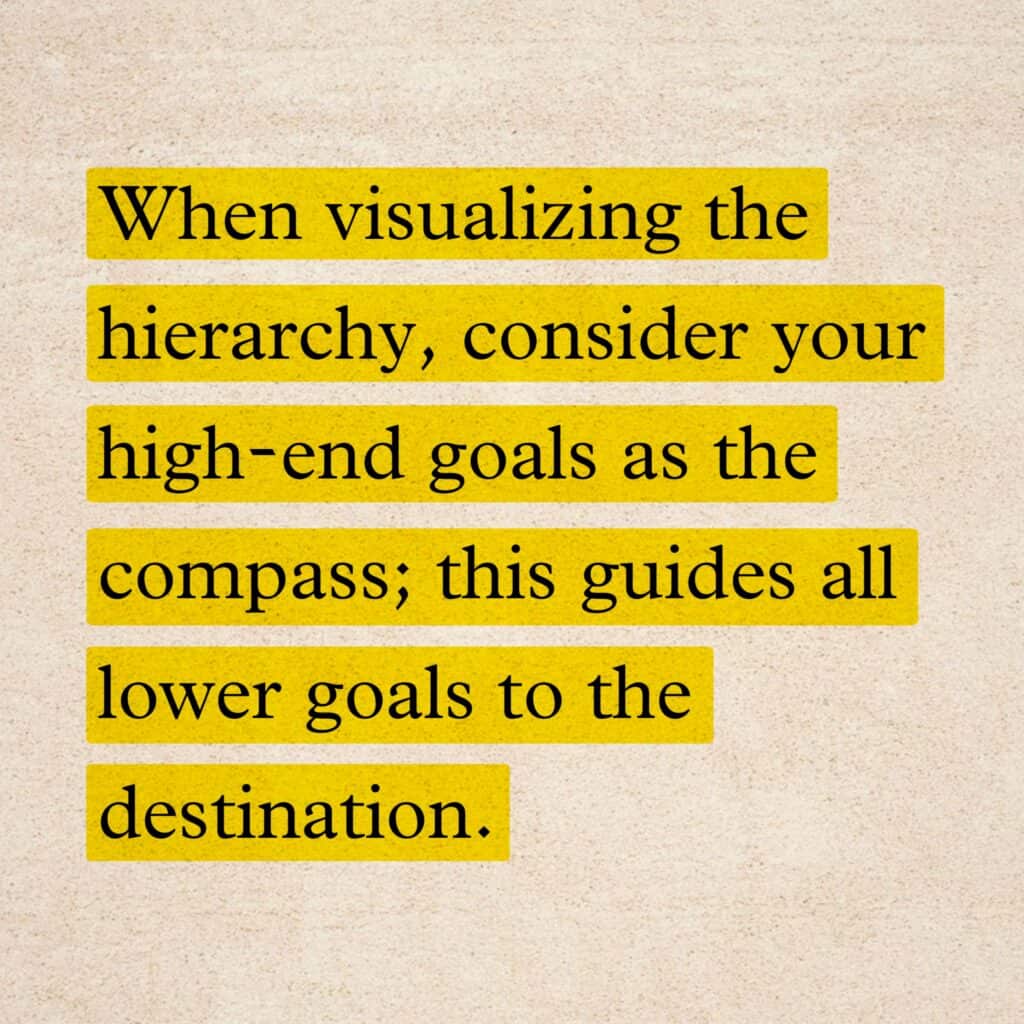
Within goals, there is a hierarchy. If you look at the bottom of your goal hierarchy, you’ll find what you might consider your short-term list of to-do, think you want to achieve that day, often menial tasks. The bottom of your goal hierarchy only exists as a way of moving towards your larger goals.
The higher up the goal hierarchy you go, the more the dreams become the end in themselves. When visualizing the hierarchy, consider your high-end goals as the compass; this guides all lower goals to the destination.
A component of grit is to have a top-level goal for an extended period. This goal becomes so critical to your life that it controls everything you do. A gritty person has one top-level goal, and all goals below are related to the principal purpose. They are all designed to help you reach the final destination.
Someone without grit may have unrelated plans with no apparent connections. That’s why you decide your top-level goals and divide them into many smaller-level goals. You will get closer to the top-level goals as you achieve smaller goals.
Chapter 4. Are you born with grit?
Are we born with grit? Is it part of us, or is it something you can learn? There needs to be a clear answer; if you had to provide a quick response, you could say you are partly born with it. But, going into more detail, Duckworth believes that some grit can be related to genetics and the rest result from experience.
There are four critical characteristics of a gritty person:
A gritty person must have interest and passion. They need to enjoy what they do and be committed to their desires. To dedicate time to their interests every single day. Also, a gritty person will understand that goods do not appear overnight; sometimes, you must be patient and wait for your goods to develop and mature.
1. The second characteristic is the ability to practice. Someone with grit will dedicate themselves to practising every day and striving to be better than the day before.
2. The driver behind passion has a purpose. Someone with grit will understand their meaning and why they do the things they do.
3. Finally, hope. A gritty person must have hope, a critical element of perseverance. One form of industry is the daily discipline of trying to do things better than we did yesterday.
Chapter 5. How to grow grit?
To succeed in life, a child requires love, limits, and latitude. A child with constant support is respected and held to high standards and is given the ability to reach their full potential. And parents who know this are doing authoritative parenting or wise parenting. Rather than relying on their parenting power, they call upon their knowledge and wisdom in parenting, hoping their child will emulate them and succeed.
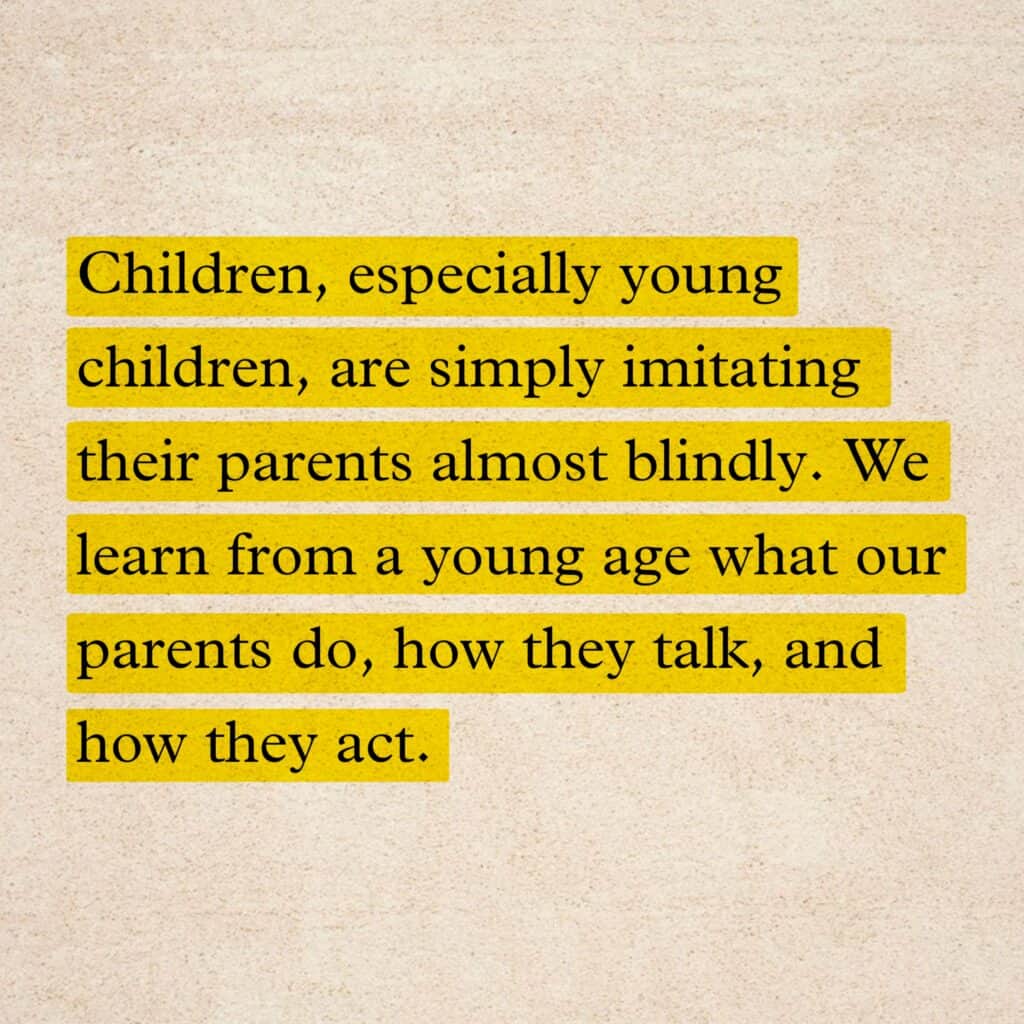
Children, especially young children, are simply imitating their parents almost blindly. We learn from a young age what our parents do, how they talk, and how they act. We have nothing else to look up to, so we copy them. However, imitation differs significantly from emulation.
The older we get, the more capable we are of passing judgment on our parents (and others’) actions and behaviour. Therefore, if we decide to take action and copy a specific behaviour or activity, it is done with a better understanding rather than a blind willingness to follow.
In her time studying grit, the author has enchanted countless gritty people who dedicate their success to their parents; they look up to them as role models and deeply admire them. And more often than not, their passions and interests are aligned with their parent. It is clear that gritty people don’t simply copy what their parents do blindly, but they emulate them and their work.
Although your parents may be supportive, authoritative, and wise, they may not be gritty themselves. Without expressing and enforcing the setting of long-term goals, passion, and strong perseverance, parents are not raising gritty children. As a parent, if you want to raise gritty children, you must first identify your passions, goals, and ability to persevere.
Do you stick to your goals and pursue them no matter what? Is this the standard you are setting for your children? Or do you have many loose goals that you often stop following altogether? To raise gritty children, you have to be gritty yourself. You can’t teach something you don’t do.
Chapter 6. Grit and school
For some kids, the school can be challenging and uninteresting. Kids may enjoy playing with their friends at lunchtime, but it’s not complicated. Research identifies children involved in activities outside their regular schooling do better overall.
It can significantly benefit their school marks, confidence, commitment, and abilities. Of course, children can be fickle and flick between sports or activities as they, please. But it takes years of dedication to the art; the hours spent practising, to master a skill. And this is when the results become beneficial.
If you are a parent who wants to raise gritty children, Duckworth recommends implementing the hard thing rule. It’s about committing 100% to something for a specific period and giving it your all. Every family member, including the parents, must have their own hard thing. Quitting is an option.
When selecting a tricky thing, the child must pick their own; it’s not up to you as a parent to choose. For younger kids, a season or a year is the commitment length required, but as children reach high school, it should be a 2-year minimum rule. On your own, you can cultivate your grit from the inside out. You can grow interests, develop daily practice habits, and work on a purpose.
Chapter 7. Grit and culture
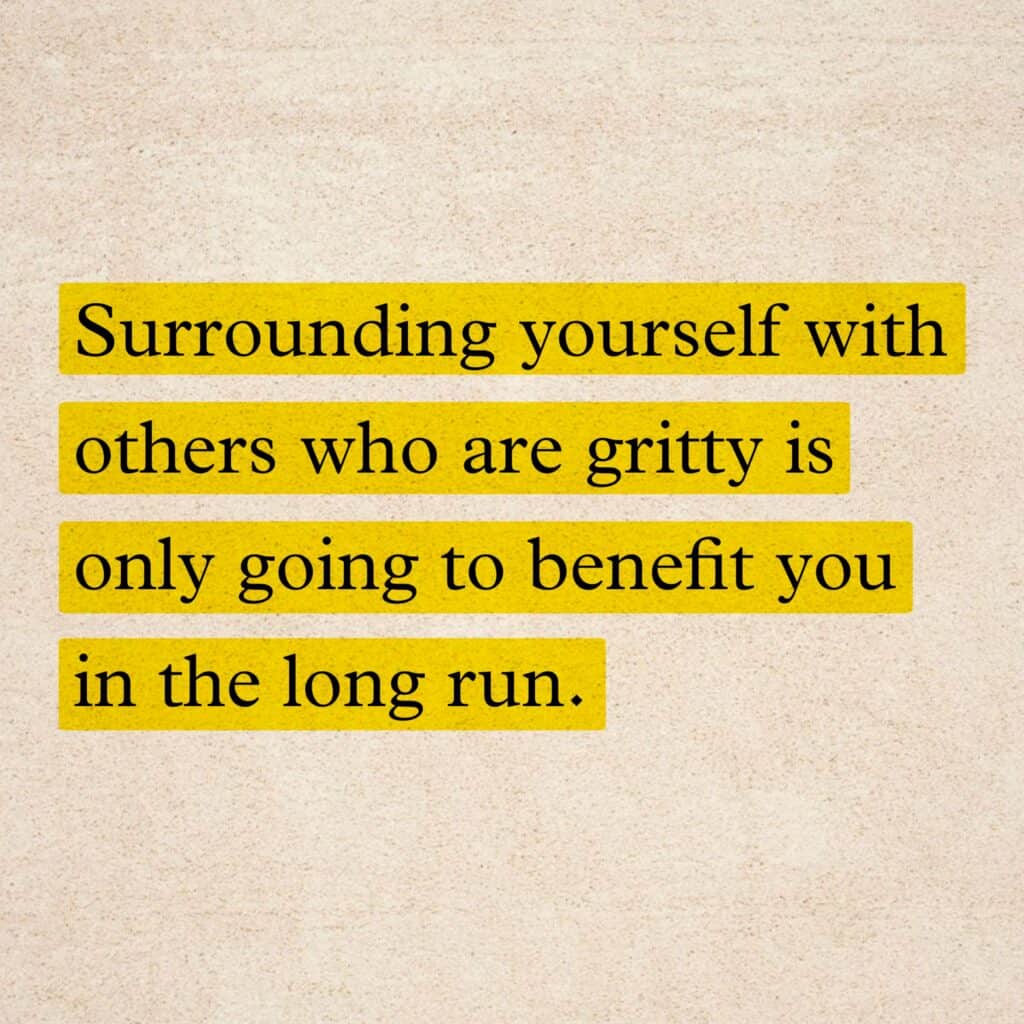
The culture we live and identify with powerfully shapes every aspect of our being. Culture is defined as a group of people who all share the same values and norms. And based on this definition, it becomes clear that you need to find a gritty culture if you want to be as gritty as possible. Surrounding yourself with others who are gritty will only benefit you in the long run.
Being part of the right culture or group is incredibly important to your growth; the people you surround yourself with can significantly influence who you are and your identity. The group’s culture becomes your own and integral to who you are. To be gritty is to fall seven times and rise eight.
Key takeaways
- Grit is the combination of passion and perseverance.
- There is often too much emphasis on talent; effort is just as significant, if not more.
- Talent = how rapidly your skills develop when you commit time and effort.
- Achievement is the result of your developed skills being used well.
- It’s easy to quit. A genuinely gritty person will put in maximum effort on one day, but that’s not the important part; the critical component in being gritty is waking up day after day and continuing to put in the maximum effort without excuse.
- A striver will continually improve their skill and simultaneously make use of their skill; they will practice it regularly.
- Talent does not equal skill. Talent is a natural ability. Whereas skill comes around after many hours of practising and developing any skill.
- The time spent on skill greatly outweighs that spent on talent.
- The four characteristics of a gritty person are passion, the ability to practice, purpose & hope.
- A component of grit is to have a top-level goal for an extended period. This goal becomes so critical to your life that it essentially controls all the other things you do.
- Gritty parents raise gritty children.
Grit Book Review
“Grit” by Angela Duckworth is a powerful and inspiring book that delves into the concept of passion and perseverance as the driving forces behind success. Duckworth’s extensive research and compelling anecdotes demonstrate that talent alone is not enough to achieve greatness; instead, the combination of passion and persistence truly sets high achievers apart.
As a reader, I found the book enlightening and motivating. Duckworth presents a strong case for the importance of developing grit, and she offers practical advice on how to cultivate this essential quality. Her writing style is engaging and accessible, making complex psychological concepts easy to understand.
One of the most impactful aspects of the book is the exploration of the “growth mindset,” a concept that emphasizes the importance of embracing challenges and learning from failures. Since reading “Grit,” I have become more aware of my own mindset and consciously tried to adopt a growth-oriented perspective.
In conclusion, “Grit” is a must-read for anyone looking to unlock their full potential and succeed personally and professionally. Angela Duckworth’s insights and guidance will inspire you to cultivate grit and embrace the power of passion and perseverance.
Contents







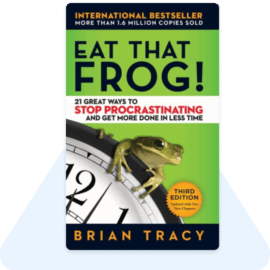

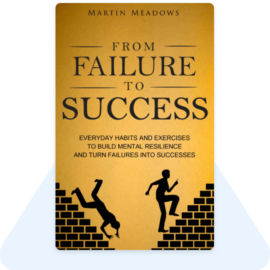
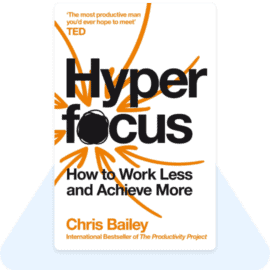

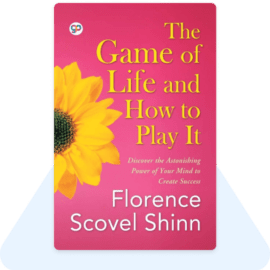

21 days book summary challenge
12/28
grit: passion, perseverance, hope, surround, purpose!!! gritty parent raise gritty kids
11 th day completed
GRIT ka jaanaboojhakar abhyaas, ek vikaas maanasikata aur ek sahaayak vaataavaran ka maadhyame se dhariy vikasit aur vikasit kiya ja sakata hai. gritty hama intrest aur passion ko follow karnaye help karta yadhi hum gritty ko life absorption kar hai too hamara life satic and passion ko follow karne maaa asan ho jata hai.
This Book is very helpful